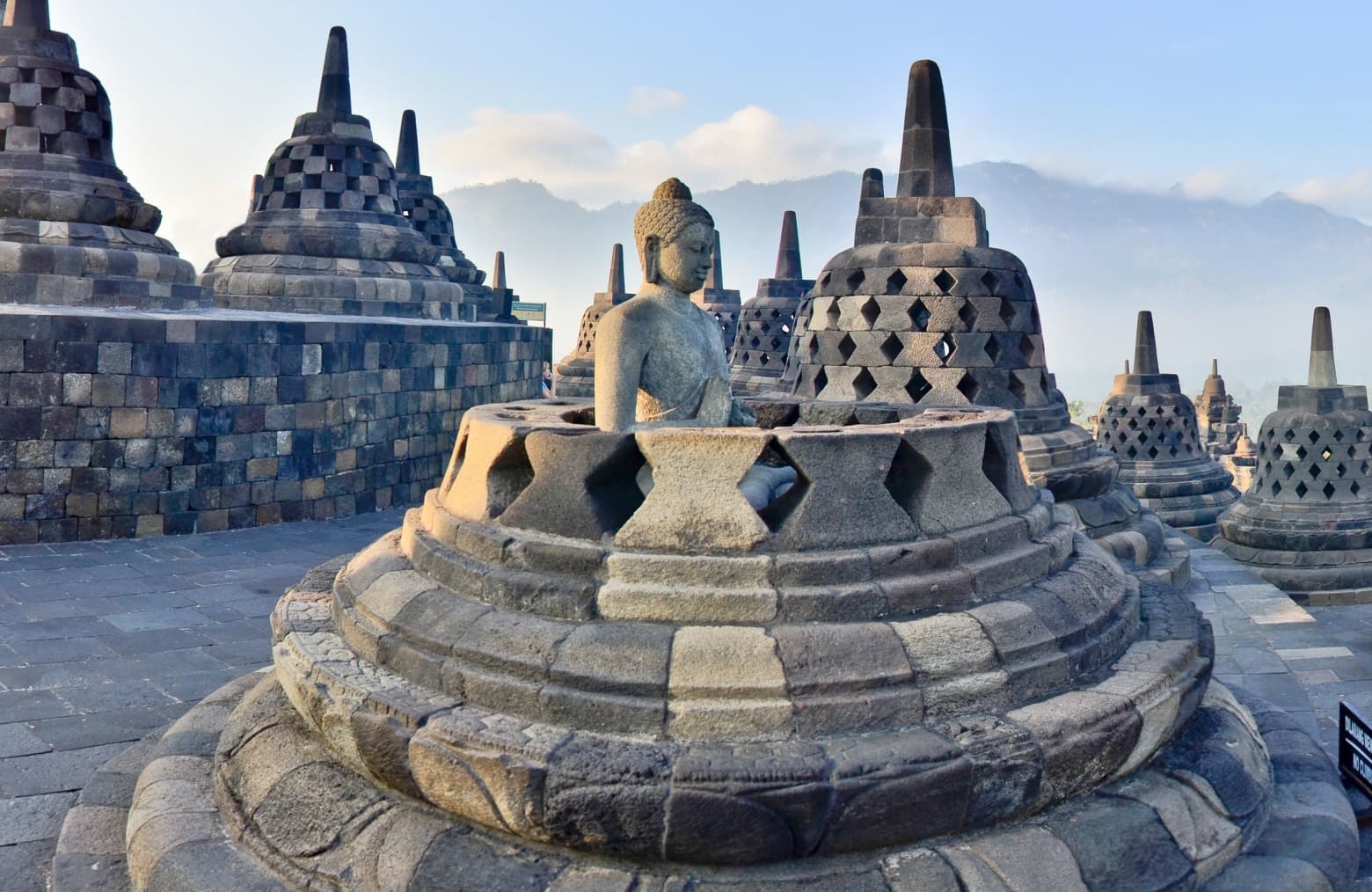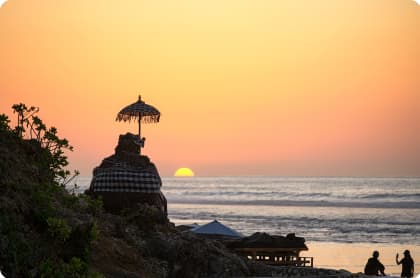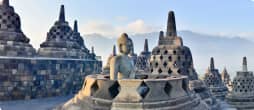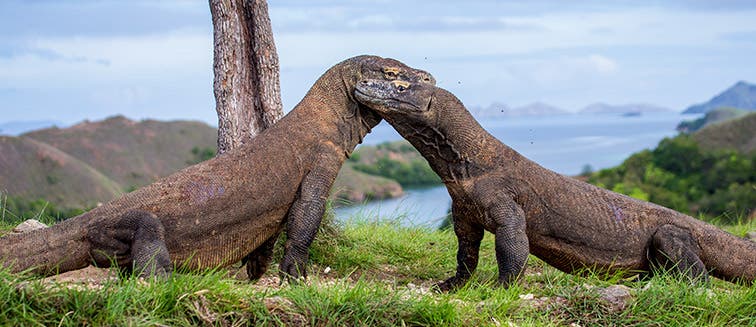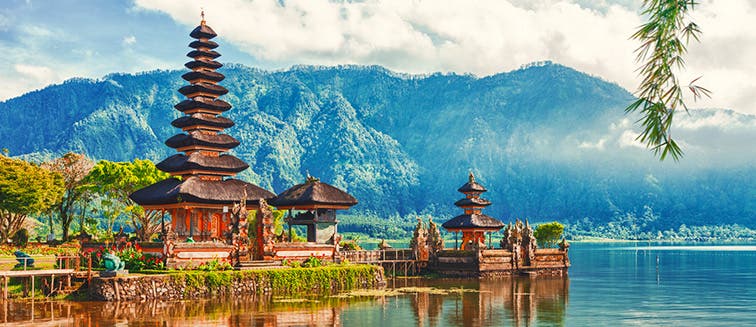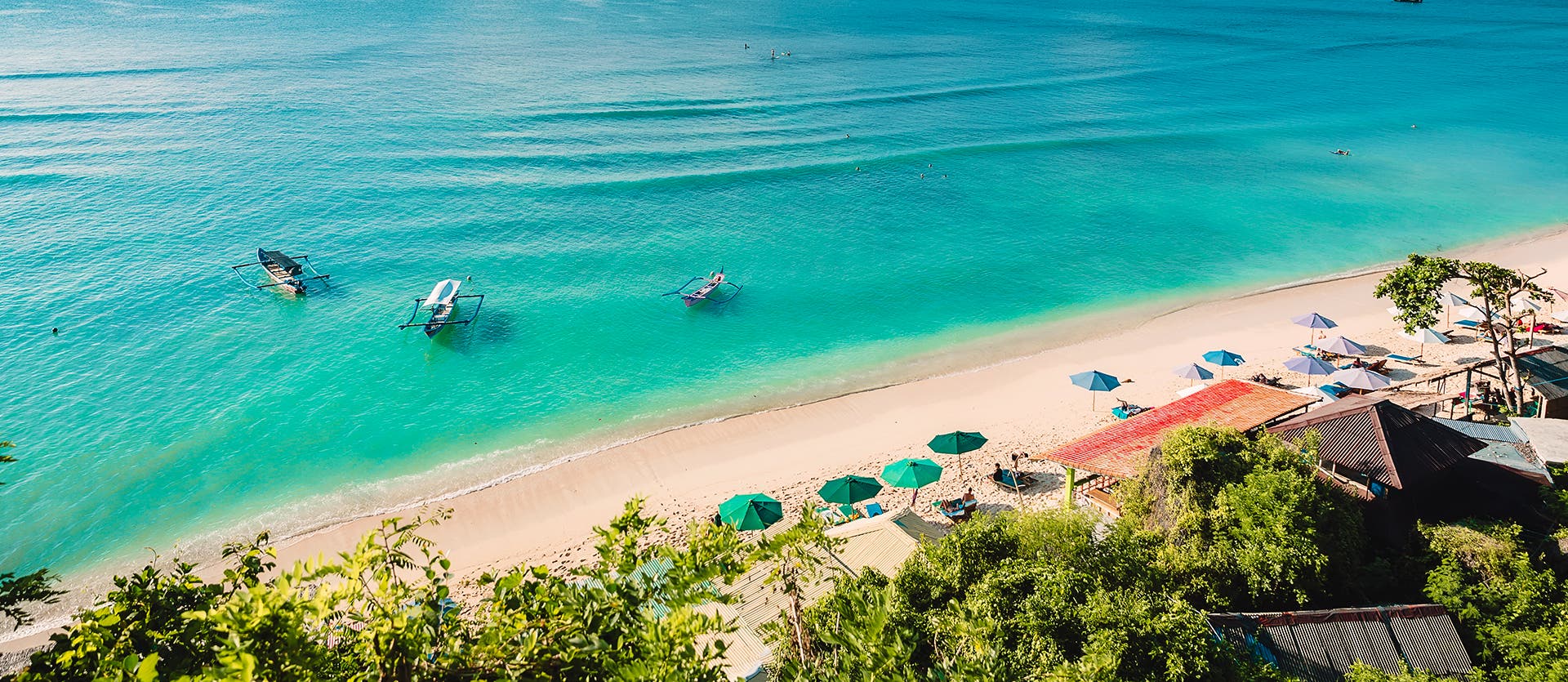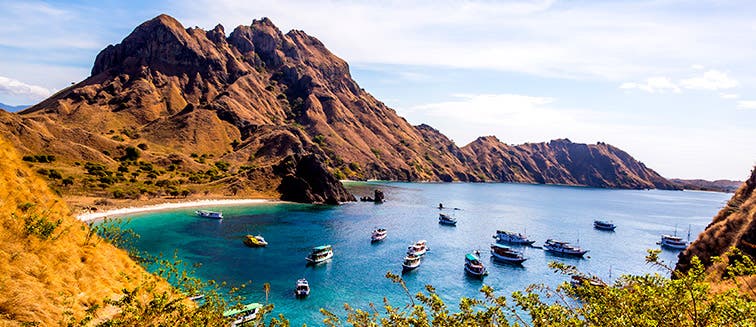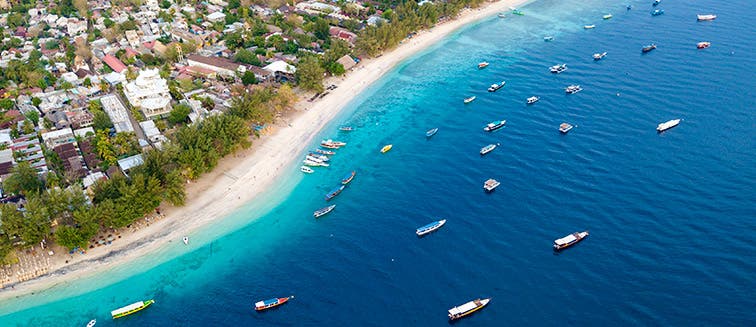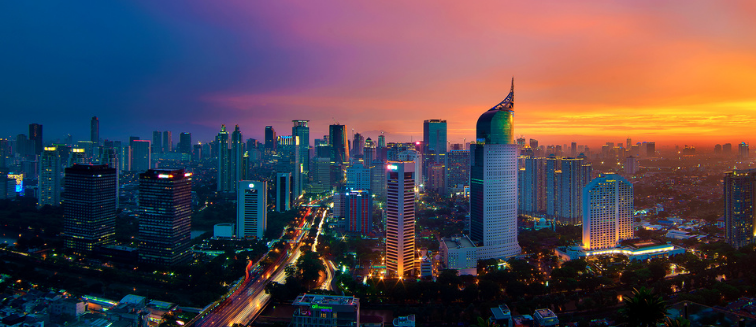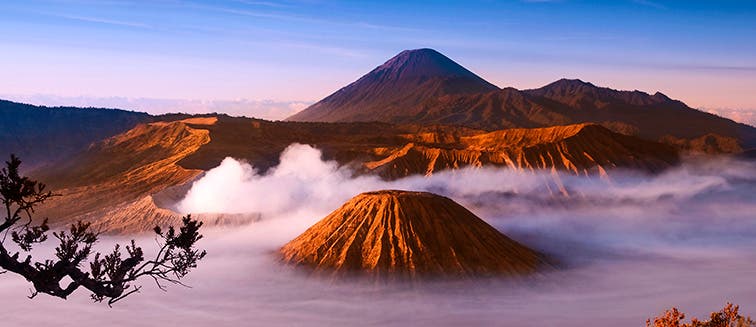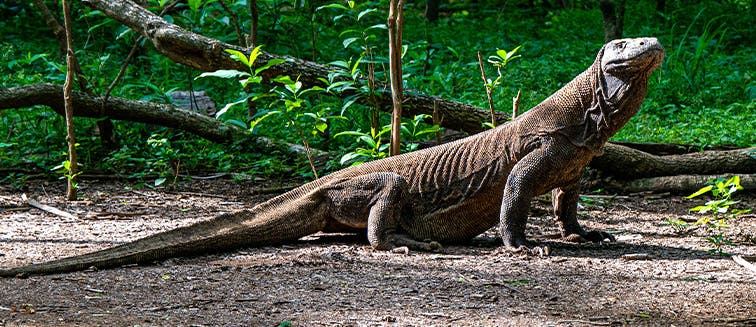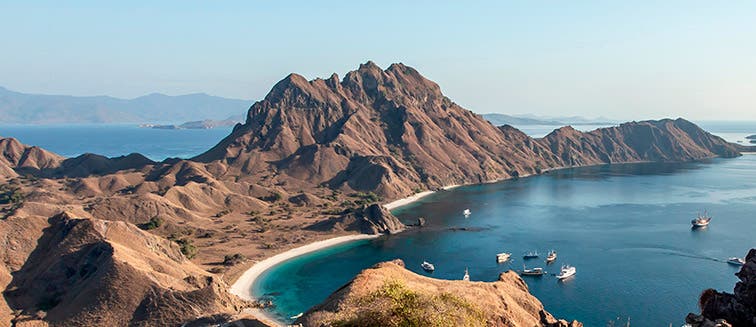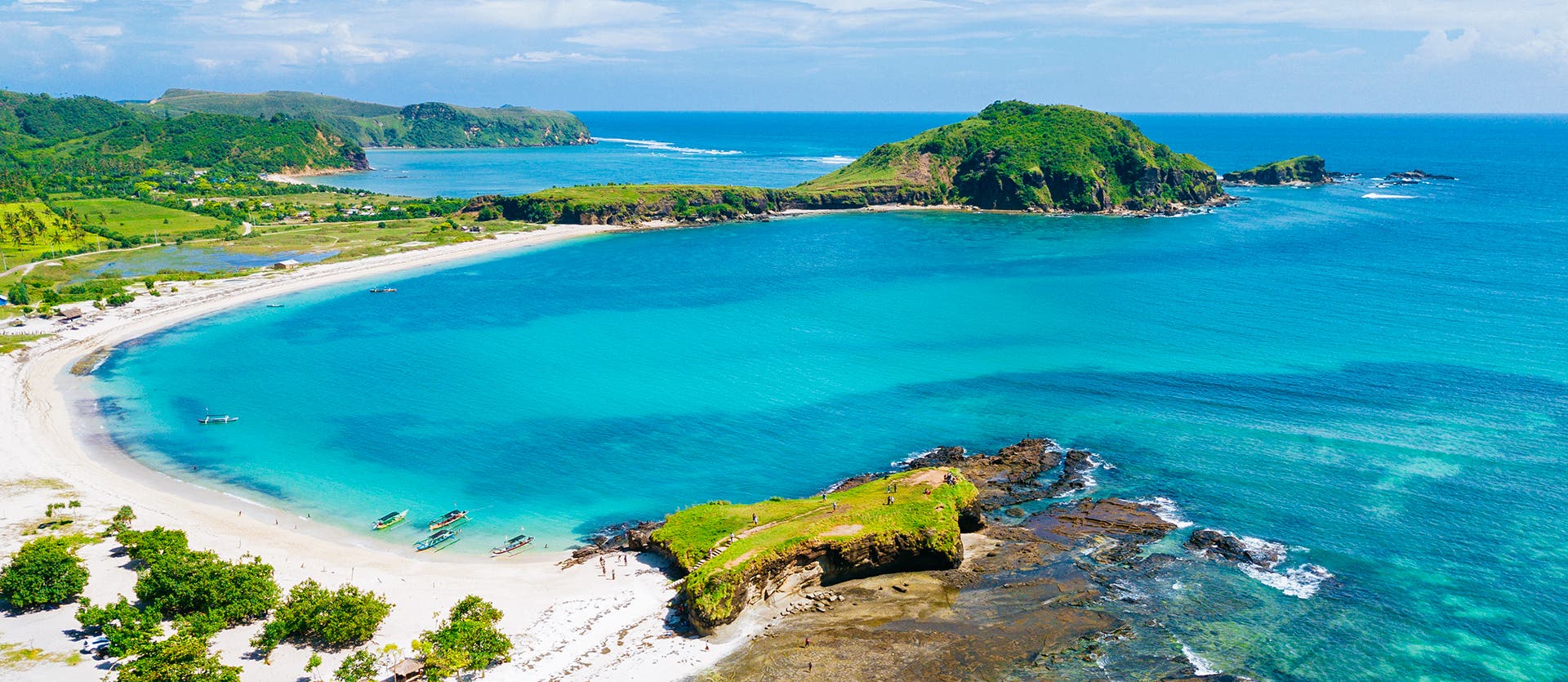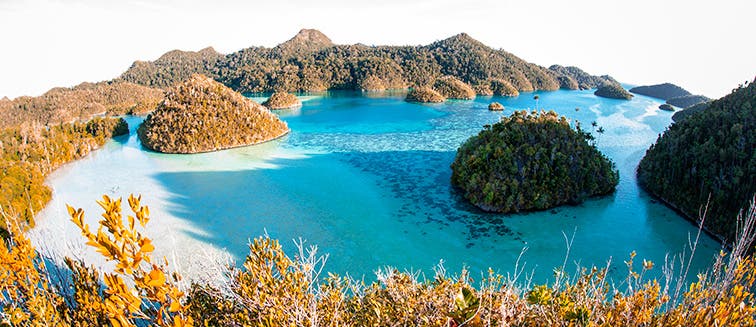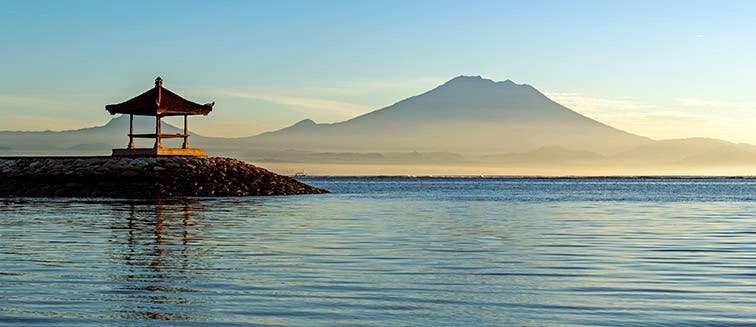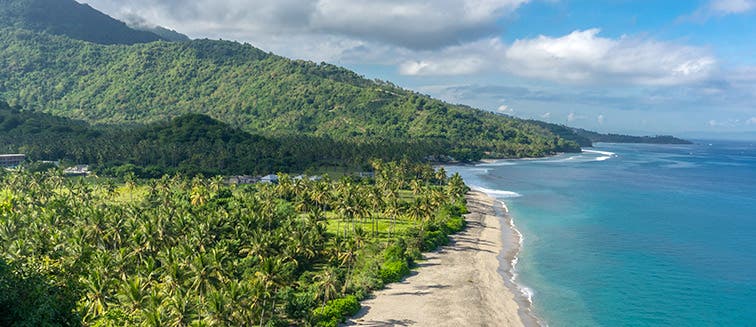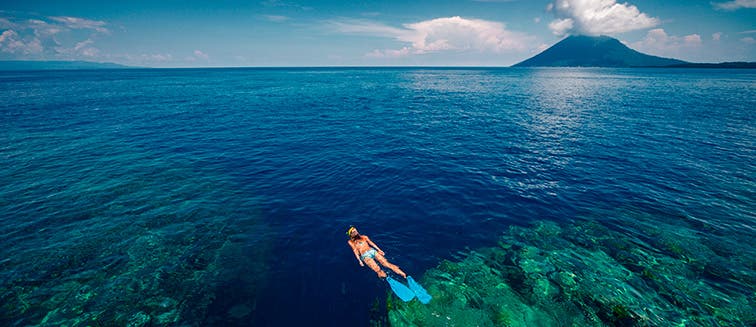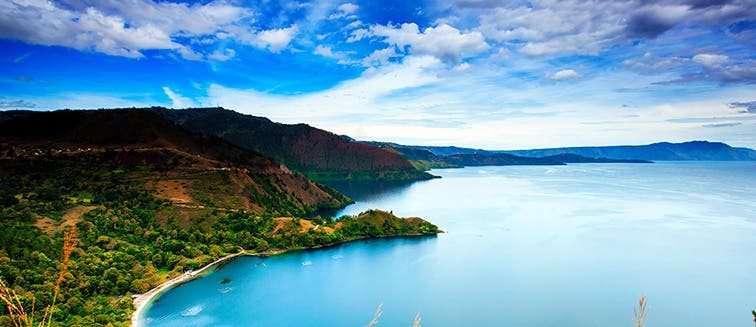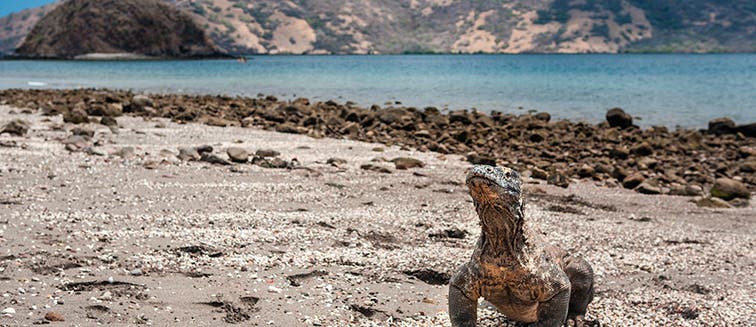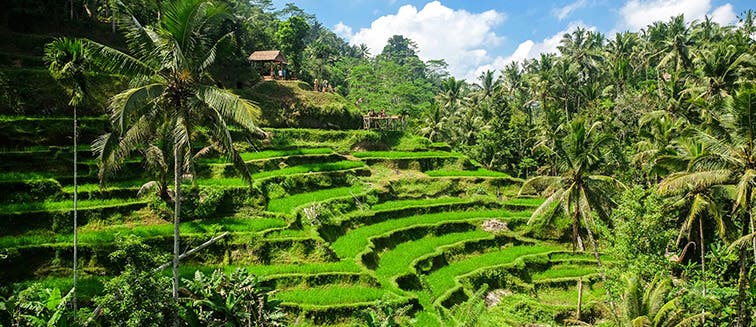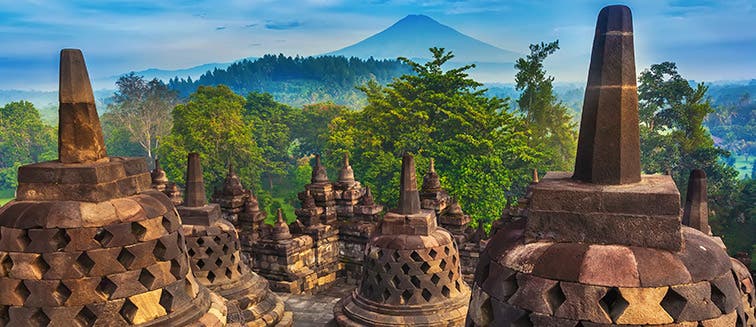An archipelago filled with elaborate temples, diverse islands, jungles and paradise beaches, Indonesia is a dream travel destination for lovers of all things exotic. A package holiday to Indonesia has space for everything, from the densely populated island of Java to isolated rocks which are home to some rather alarming-looking animals, like the Komodo Dragon.
This Southeast Asian nation is composed of more than 17,000 volcanic islands, located between the Indian and the Pacific Oceans, making it the largest island country in the world. Sharing land borders with Papua New Guinea, Malaysia and East Timor, Indonesia is home to a staggering 261 million inhabitants and is the 4th most populous country in the world.
The large island of Java is the busiest island, home to around half of the entire population and the capital city of Jakarta, the centre of politics and economy in Indonesia. The national motto ‘Unity in Diversity’ acknowledges the diversity of the country’s inhabitants, which are composed of hundreds of distinct ethnic groups, as well as the amazing variety of islands, environments and cultures.
Indonesia also has a strong Muslim tradition as followers of Islam make up the majority of the population. The opportunity to island hop and encounter many different experiences in one trip is one of the main attractions of a multi-centre holiday to Indonesia.
The country’s major islands include Sumatra, Java, Borneo and the Lesser Sunda Islands, which include the idyllic islands of Bali, Lombok and Flores. The paradise beaches, sacred temples and lush rainforests of the islands in this group are often the images that spring to mind when envisioning Indonesia, but this exceptional biodiversity and natural beauty can be found throughout the archipelago from tiny uninhabited islands to the larger land masses as well.
History of Indonesia
On a tour of Indonesia, you will discover the influences of the nations diverse history on its monuments, sights and traditions. Most written histories of the island nation of Indonesia begin with the kingdom of Srivajay in the 7th century, which was a powerful empire based on the island of Sumatra. The kingdom acted as an important centre for the spread of Buddhism and was known for its impressive maritime technology.
Over the following centuries other kingdoms, such as the Shailendra and Mataram, thrived and declined on the island of Java, leaving behind their heritage in exceptional monuments and religious buildings such as the Borobudur in central Java and the Prambanan in Yogyakarta, both unmissable highlights to enjoy whilst on holiday in Indonesia.
In the 13th century, the kingdom of Majapahit arose as the leading power in the region, its influence spreading across much of modern-day Indonesia. The Islamic culture which the country is known for arrived around this period, brought by Muslim traders and scholars, and by the 18th century, Islam was the dominant religion on the islands of Java and Sumatra.
From 1513 onwards, Portuguese, British and Dutch traders began arriving in the region, trading with locals and eventually establishing the Dutch East India Company, who remained involved in Indonesia until World War II, when Japan occupied the archipelago.
Japanese rule encouraged a increased sense of Indonesian nationalism and independence movements, resulting in the nation's independence in 1945, after the surrender of the Japanese. Modern-day Indonesia has endured its share of conflict and struggles both internally and with other nations, but has seen a lot of growth in recent years. Today, it is a vibrant and varied travel destination, which captivates the traveller on with its natural abundance and warm hospitality.
Nature in Indonesia
The sheer size, tropical climate and island geography of Indonesia make it one of the most biodiverse countries on earth, with a combination of both Asian and Australasian wildlife and fauna species.
Islands such as Bali, Sumatra, Java and Borneo, were once part of the Asian mainland, and have retained the rich wildlife of the continent, examples of which include the Sumatran tiger, the famous orangutans of Borneo, leopards and Asian elephants.
Many visitors on a trip to Indonesia are attracted by the prospect of meeting orangutans in the jungle or watching elephants play in the Kinabatangan River on the island of Borneo.
Dense forest covers around 70% of the country, although some of the larger islands have suffered a significant amount of deforestation. On the nation' smallest islands, the geographical isolation has encouraged the development of extremely unique biodiversity, with a large number of endemic plant and animal species. These range from the Corpse Lily, the world’s largest flower, to Komodo dragons and the magical Greater bird-of-paradise. In fact, Indonesia ranks 2nd in the world after Australia for its number of endemic species.
It’s 80,000 kilometres of coastline are a beach-lovers dream, surrounded by tropical seas with abundant marine life such as manta rays and sea turtles. The Gili Islands are considered to be ‘turtle heaven’, due to their large populations of turtle species including green sea turtles, leatherbacks and hawksbill.
A package holiday to Indonesia is incomplete without taking some time to snorkel in the warm waters of the country’s tropical coastline. There are a number of must-see natural attraction in Indonesia, but the most popular include visiting the fearsome Komodo Dragons on the aptly named Komodo Island, a tiny island situated off the coast of Flores, diving or snorkelling around the Raja Ampat islands to discover an underwater world of multi-coloured coral and sea-life, meeting the endangered orangutans of Borneo and venturing out on a night safari in the Kerinci National Park in Sumatra to spot majestic Sumatran tigers and Asian elephants.
Culture in Indonesia
With at least 300 ethnic groups, there is no single dominant or homogenous culture in Indonesia; instead, there exists a pleasant mix of traditions and cultural sights across the different regions, islands and communities. One thing that almost all Indonesian’s have in common is that religion is at the heart of their everyday lives. Wherever you travel in Indonesia, you will notice that religion is at the heart of the country, from Hindu devotees making morning offerings in Bali to Muslims attending Friday prayers in the enormous Istiqlal Mosque in Jakarta. The government recognises six official religions, although the most dominant is Islam, so you can expect to see the influence of this on the country's culture.
Another facet of Indonesian culture is the prevalence of traditional performing arts; watching a colourful Barong dance show is an unmissable experience to enjoy on holiday in Bali, whilst the superstitious and visually striking Reog dance is not to be missed during a visit to East Java.
There are more than 3,000 original Indonesian dances, each presenting a dynamic living tradition. Indonesia also has a strong arts and craft tradition, with a variety of artisans creating unique cultural objects throughout the country. In Bali, there has been a long tradition of artistry, with an expectation on individuals to take up their preferred art skill from a young age. Despite the complex melting pot of cultures, traditions and arts in the country, one thing is for sure: a trip to Indonesia will inspire your imagination and creativity like no other destination, hence it has attracts artists from all over the world.
From the bustling streets of Jakarta to the delicate sandy beaches of Gilli and the lush rainforests of Ubud in Bali, the island nation of Indonesia presents the traveller with an abundance of experiences. Island-hopping around the archipelago, you will be amazed by the natural abundance, rich history and open-minded culture.
A holiday to Indonesia suits all tastes. One day you might be tracking tigers in the jungle and the next, watching the sunset on a paradisiacal beach, such is the diversity of Indonesia.
